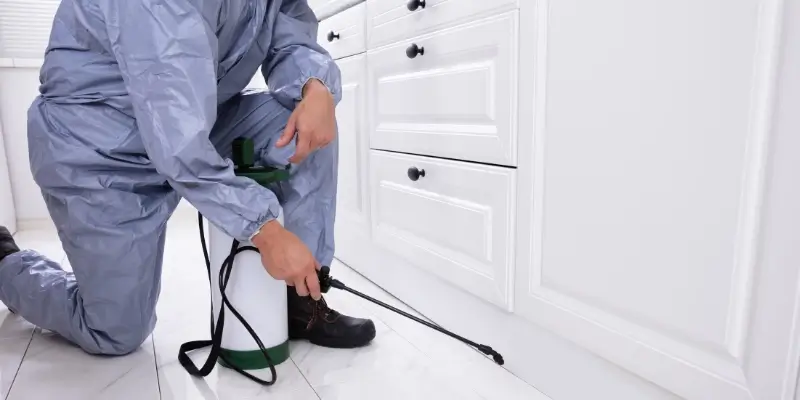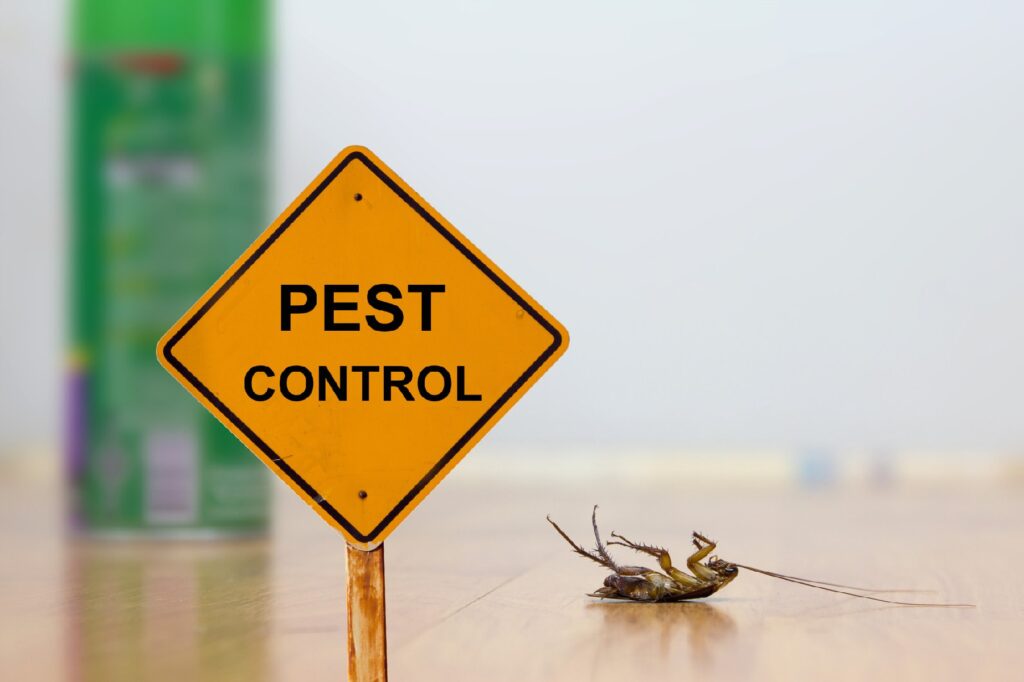Safe and Dependable Pest Control for Lasting Defense
Effective pest monitoring requires a multifaceted strategy that balances environmental honesty with the requirement for reliable bug suppression. The nuances of these approaches may not be right away clear, prompting a better evaluation of the methods that can lead to sustainable bug control end results.
Understanding Insect Control Methods
Insect control encompasses a variety of methods focused on handling and eradicating undesirable bugs and rodents that can intimidate both health and residential property. Understanding these approaches is critical for reliable bug management.
The primary categories of bug control techniques consist of mechanical, organic, and chemical techniques. Mechanical methods involve physical barriers and traps to stop pest entrance and capture undesirable species. As an example, using displays on windows or employing sticky traps can considerably reduce insect populations without presenting unsafe compounds.

Chemical parasite control is usually one of the most acknowledged method, making use of pesticides to get rid of bugs. These chemicals can be effective however must be made use of with caution to stay clear of unfavorable results on non-target species and the atmosphere.
Advantages of Eco-Friendly Solutions
Just how can green remedies transform insect control techniques? The fostering of environment-friendly pest control approaches uses many advantages, considerably improving the performance and safety and security of pest administration.

One more benefit is the favorable impact on regional biodiversity. Green remedies are designed to target particular bugs while maintaining valuable pests and wild animals, promoting a balanced environment. This strategy aligns with the growing customer need for sustainable methods, enhancing the track record of parasite control suppliers.
Integrated Insect Administration Techniques
The execution of eco-friendly services naturally causes the adoption of Integrated Parasite Monitoring (IPM) approaches, which better boost parasite control efficiency. IPM is a holistic approach that combines numerous methods to take care of parasite populaces while decreasing ecological impact. This strategy emphasizes using organic, cultural, mechanical, and chemical controls, ensuring a well balanced and lasting approach of bug monitoring.
One essential element of IPM is the thorough analysis of bug task and environmental conditions. By monitoring insect populaces and recognizing their life cycles, specialists can apply targeted interventions that interrupt the insect's habitat or lifecycle, minimizing dependence on chemical pesticides. In addition, social techniques such as plant turning and habitat control can considerably reduce parasite establishment and reproduction.
One more vital component is making use of biological control representatives, such as useful bugs or microorganisms, which can normally suppress parasite populations. When chemical applications are essential, IPM prioritizes using low-risk chemicals and applies them uniquely, reducing direct exposure to non-target organisms and human beings.
Integrating IPM techniques not just enhances pest control performance but additionally promotes a much safer ecosystem, lining up with the growing demand for lasting methods in parasite administration.
Safe Practices for Home Owners
Comprehending the relevance of safe methods in parasite control can empower homeowners to successfully take care of insect problems while safeguarding their health and wellness and the environment. Carrying out safe methods and safety nets is essential in decreasing direct exposure to harmful chemicals.
House owners should first examine their setting for conditions that draw in bugs, such as standing food, water, and mess waste. Routinely cleaning and sealing entrance points can discourage bugs from attacking the home. Making use of all-natural deterrents, such as crucial oils or diatomaceous planet, can give reliable choices to chemical pesticides.
When chemical treatments are required, property owners ought to choose for products that are specifically labeled as safe for residential usage. It is important to adhere to application guidelines meticulously to avoid overexposure. Moreover, utilizing targeted treatments in locations where bugs are determined, instead than blanket splashing, can significantly decrease chemical use.
Lastly, maintaining open interaction with bug control specialists is crucial. Property owners should ask about the safety of items made use of and request environment-friendly options whenever feasible. By taking on these secure practices, homeowners can develop a healthier living setting while effectively taking care of insect issues.

Tips for Long-Term Security
Developing an insect monitoring approach that stresses long-lasting protection can greatly boost the performance of the risk-free practices formerly discussed. To attain this, house owners ought to implement normal assessments of their residential property, concentrating on concealed areas such as attic rooms, cellars, and crawl areas. Early detection of bug task is important in preventing invasions from holding.
Additionally, keeping a clean atmosphere is vital. This includes ant pest control correct food storage, promptly cleaning up spills, and consistently taking care of trash. These techniques minimize attractants that attract insects right into the home. Securing entry points, such as fractures around doors and home windows, can effectively block prospective bug accessibility.
Landscaping needs to also be thought about; maintaining plants cut and preserving a distance in between plants and the home minimizes concealing spots for bugs. Making use of natural deterrents, such as vital oils or diatomaceous earth, can even more dissuade problems without turning to harsh chemicals.
Lastly, collaborating with a professional pest control solution for routine analyses can give an added layer of protection. These experts can supply tailored recommendations and advanced therapies, making certain that your home stays safeguarded against insects in the long-term.
Verdict
Finally, risk-free and dependable bug control calls for a diverse approach that stresses environment-friendly techniques and incorporated pest management. By implementing all-natural deterrents, carrying out regular examinations, and preserving proper hygiene, residential property owners can considerably lower parasite populations while protecting helpful insects and the setting. Partnership with professional pest control solutions enhances the efficiency of these strategies, guaranteeing tailored remedies that supply lasting protection and satisfaction against future infestations.
Reliable pest administration needs a complex approach that balances eco-friendly integrity with the demand for effective bug reductions. The adoption of environment-friendly pest control approaches uses countless see this site benefits, considerably boosting the effectiveness and security of insect monitoring.The application of environmentally friendly options normally leads to the adoption of Integrated best site Parasite Administration (IPM) approaches, which additionally boost insect control efficacy. exterminator coquitlam. By keeping track of bug populaces and identifying their life cycles, professionals can implement targeted treatments that interfere with the insect's environment or lifecycle, decreasing dependence on chemical pesticides.In verdict, trusted and safe bug control requires a diverse strategy that emphasizes environment-friendly methods and integrated pest administration